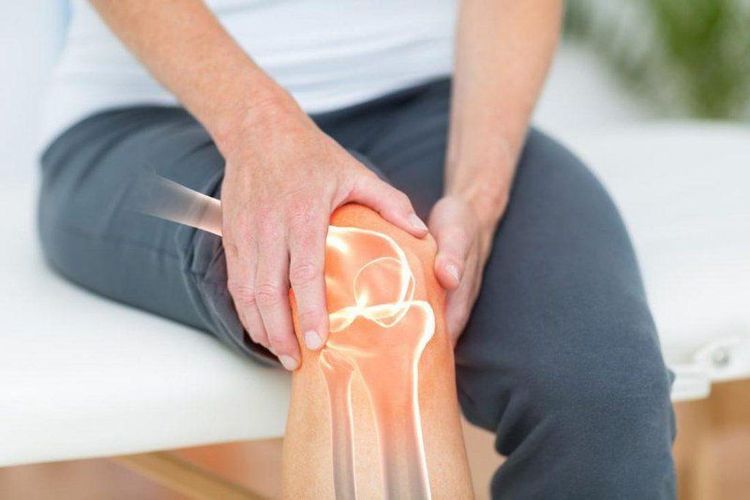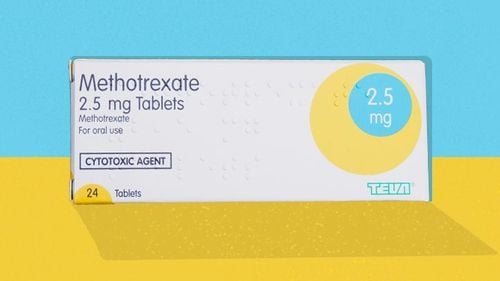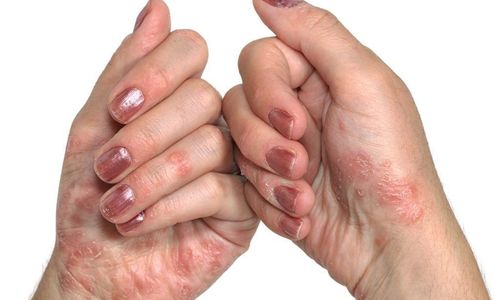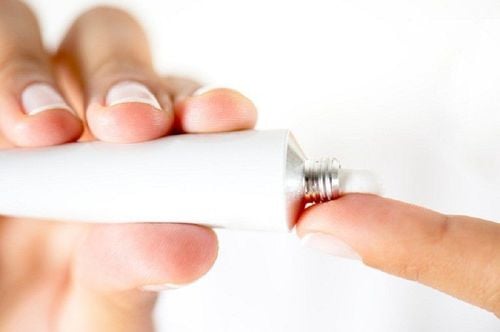This is an automatically translated article.
Otrexup, generically known as Methotrexate, is used to control severe rheumatoid arthritis and psoriasis. So what should I pay attention to when using Otrexup?1. What does Otrexup do?
Otrexup, generically known as Methotrexate, belongs to a class of anti-metabolic drugs that suppress the immune system and is used to control severe psoriasis or rheumatoid arthritis that has not responded to other treatments. or adolescents with rheumatoid arthritis.Using Methotrexate for early treatment of rheumatoid arthritis is considered an active therapy to help reduce joint damage as well as maintain joint function.
2. How to take Otrexup Otrexup is placed in a syringe, which is yellow. Before use, the drug should be visually inspected for discoloration or the appearance of particles inside the syringe. In addition, also need to check the label affixed on the syringe, if the label is scratched or damaged, the medicine should not be used.
Inject Otrexup under the skin as directed by the doctor, the common dose is once a week. Before injection, the skin should be cleaned with alcohol. After injection, do not rub the injected skin. Change the injection site to reduce subcutaneous damage. Avoid injecting into areas of skin that are swollen, red or bruised, stretch marks, or scarred.
Depending on your health condition and response to treatment, your doctor will prescribe an appropriate dose. To achieve effective treatment, patients need to inject Otrexup at the right dose at a certain time frame.
Do not arbitrarily increase the dose or use the drug for longer than prescribed because it not only does not improve the disease but also increases the risk of side effects. It can take up to several months for the drug to take effect. If your condition does not improve or gets worse, notify your doctor immediately.

Sử dụngOtrexup để điều trị sớm bệnh viêm khớp dạng thấp
3. Side effects when using the drug Otrexup
Side effects are not serious: Nausea, vomiting, stomach pain, dizziness, drowsiness. If these symptoms become more severe or persist, tell your doctor. In addition, temporary hair loss may also occur and after the treatment with Otrexup is over, the hair loss will subside and disappear. Serious side effects: Mouth sores, diarrhea, unusual tiredness, pale skin (sign of anemia), nausea, persistent vomiting, abdominal pain, stomach pain, jaundice, eyes, dark urine ( signs of liver), black stools, bruising or bleeding on the skin, bone pain, muscle weakness, abnormal skin discoloration, dry cough. When these symptoms occur, the patient should immediately call the doctor. Very serious side effects: Vision changes, weakness on one side, irregular heartbeat, stiff neck, headache, convulsions, mood swings. If these symptoms appear after taking Otrexup, the patient should be rushed to the emergency room. In addition, the ability to fight infections is also reduced with symptoms such as fever, chills, cough, and sore throat. At that time, the patient needs to notify the doctor to avoid the infection from becoming more serious and to prevent the body from getting another infection and getting worse. Very serious but very rare side effects: Allergy is a very serious but very rare side effect that manifests as rash, swelling, itching of the face, tongue, throat, trouble breathing, dizziness. In case of drug allergy, the patient needs urgent medical help.
Sử dụng thuốc Otrexup có thể gây buồn nôn, nôn,...
4. Notes when using Otrexup drug
Tell your doctor or pharmacist if you are allergic to Otrexup in particular or any allergic conditions in general, as well as your medical history, especially of lung disease (pulmonary fibrosis), liver (alcoholic cirrhosis), or kidney disease. , immune system suppression, blood cell disorders, bone marrow cell disorders, stomach ulcers, duodenal ulcers, ulcerative colitis, infections (chicken pox), folic acid deficiency. Pay attention to washing hands more often and avoid going to epidemic areas, contacting people with infections such as flu, measles, chickenpox to prevent infection. If you have been in contact with an infected person or area, the patient should consult a doctor because the use of Otrexup medicine can reduce the body's ability to fight infection. Without a doctor's prescription or consent, do not vaccinate and avoid contact with people who have recently received a live vaccine. Limit heavy activities such as exercise and sports and avoid contact with sharp objects to reduce the risk of injury and bruising. If surgical treatment (including minor dental surgery) is required, inform your doctor of any medications, herbs (prescription or non-prescription) you are taking. Children may be more sensitive to the side effects of Otrexup, especially seizures. Adults may be more sensitive to the sun, so it is important to limit sun exposure as well as use sunscreen, sunscreen clothing. Tell your doctor about sunburn, blistering, or redness. The drug can affect male fertility, so if you want to take medication, you should consult your doctor. Pregnant women should not take the drug and should not become pregnant while taking it. Women of reproductive age, if taking drugs, need to learn and choose to use reasonable and safe contraceptive methods. If you become pregnant while taking Otrexup, tell your doctor right away. Women who are breastfeeding should not take this medicine, and should consult a doctor before taking or breast-feeding.
Cho bác sĩ biết về tình trạng dị ứng với thuốc Otrexup nói riêng hoặc bất kỳ tình trạng dị ứng nào nói chung, cũng như tiền sử bệnh
5. What drugs does Otrexup interact with?
Otrexup may interact with the following drugs: Acitretin, asparaginase, chloramphenicol, leflunomide Drugs that can cause kidney problems (such as cisplatin) Drugs that can cause liver problems (such as azathioprine) , sulfasalazine, retinoids such as isotretinoin) Penicillin, phenytoin, probenecid, procarbazine, pyrimethamine, sulfa drugs, tetracyclines. Using certain medications that reduce stomach acid can increase blood levels of methotrexate, leading to a higher risk of side effects such as proton pump inhibitors (esomeprazole, omeprazole, pantoprazole). Therefore, to avoid increasing the risk of side effects, patients should consult their doctor before taking.During treatment with Otrexup, if any abnormality occurs, the patient should immediately report it to a doctor or visit a medical facility for examination.
Please dial HOTLINE for more information or register for an appointment HERE. Download MyVinmec app to make appointments faster and to manage your bookings easily.
Reference source: webmd.com












